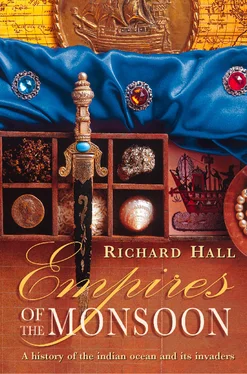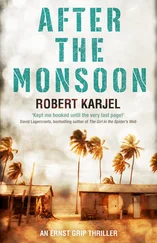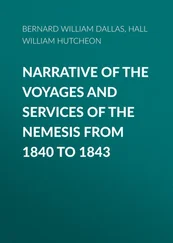Ships bound from Arabia to China sailed southwards along the coast of India to Ceylon (known as Sirandib, the Isle of Rubies), eastwards to Sumatra, through the Malacca straits at the southernmost tip of Asia, then north into the China Sea. The round voyage took a year and a half. The captains of such vessels often chose to travel in convoys, to be less at the mercy of pirates who were numerous off western India. Sometimes the pirates stationed themselves at intervals across a regular trading route to catch any lone vessel, then extorted goods or money before letting it pass; the overlord of a coastline where the pirates had their havens might even take a share of such proceeds.
However, the lure of China was irresistible, even though the risks of the voyage were so great. Its products were unequalled, its prowess awesome. About China, anything was believed possible. 5Buzurg never claims to have sailed there, but relates without a hint of scepticism several pieces of information passed on to him by friends: one describes how a high imperial functionary had made a state entry into Khanfu (Canton) with an escort of 100,000 horsemen; another told Buzurg that a Chinese ruler, giving an audience to an Arab merchant, had been accompanied by some 500 female slaves of all colours, wearing different silks and jewels. While allowance must be made for the exaggerations of travellers’ tales, it is true that the cavalry in oriental armies was numbered in tens of thousands, and that despotic rulers always took pride in their numbers of concubines.
Arabia became entranced by the magnificence of goods from China (porcelain is called ‘Chinese’ in Arabic to this day). Even the Red Sea had been called the ‘Sea of China’, because it was from there in the earliest times that ships began their voyages with cargoes of ivory, incense and gold, to barter for luxuries in that country the Romans, following the Greeks, had called Seres, the ‘land of silk’.
The great Sassanian empire of pre-Islamic Persia had despatched missions to China. Although Persia’s ancient civilization itself had much to offer – the Chinese were happy to imitate its techniques in silverware and blown glass – the rulers of China always took it for granted that every other nation must acknowledge their superiority and come to them; no other race has maintained this trait so rigidly. Although one Chinese scholar is known to have visited Baghdad in the tenth century. Buzurg never mentions any journeys by Chinese merchants to the western side of the Indian Ocean. When monarchs of distant countries sent gifts to the emperor, who was known to Arabs as the Sahib al Sin , these were loftily accepted as tribute, signs of obeisance. In return, Chinese titles were bestowed on the donors.
Despite the perils of ocean travel – or perhaps because of them – voyaging to faraway lands was a prospect that stirred the enthusiasm of the young: expressions of that spirit endure in the outlines of sailing ships, with their crews aboard, scratched into the plaster of excavated houses in ancient Indian Ocean cities. Yet there is no doubt that disasters were frequent. A Chinese official writing in the ninth century noted that ‘white pigeons to act as signals’ were carried by ships coming from the Indian Ocean: ‘Should a ship sink, the pigeons will fly home, even for several thousand miles.’ For sailors, land birds could also be good news, because after weeks on the open sea the first sighting of them confirmed that land must be near. Before the age of charts or precise instruments, a captain had to rely on such signs: a change in the colour of the water or current, drifting debris, even the amount of phosphorescence on the waves at night.
A famous captain who had made the voyage to China seven times is portrayed by Buzurg as a hero; in the end he goes down with his ship. The Indian Ocean vessels, built to carry at most a hundred tons of cargo, and fifty or sixty people, always feared storms, but being becalmed was just as dangerous. Drinking water might run out, or diseases spread from the rat-infested holds. Sometimes the torments of heat and stench drove passengers off their heads. Those who kept their sanity spent much of their time reading holy books, searching through them for auguries of a safe arrival. Everyone yearned for the first cry from the lookout, al-fanjari , standing in the bows, that land was at last in sight.
Often the tales in The Wonders of India display an ironic humour in evoking life at sea. They can also be poignant. When Buzurg writes about how people behave in times of crisis, the intervening centuries suddenly vanish away. He tells of a shipwreck after which the survivors drift for days off the coast of India in a small boat. Among them is a boy whose father had been drowned when the ship went down. Hunger drives the survivors to think of cannibalism, and they decide to kill and eat the boy. ‘He guessed our intentions, and I saw him looking at the sky, and screwing up his eyes and lips in silent prayer. As luck had it, at that moment we saw the first signs of land.’
Not surprisingly, many wandering merchants chose to stay in whichever port most took their fancy, rather than risk a return journey. If there was business to be done, a mosque to pray in, and slaves and concubines to satisfy physical needs, there was little more to be desired. In particular, travellers who reached China safely were often loath to come back. Two centuries before Buzurg was writing, Persians and Arab merchants in the East were already numerous enough to launch a seaborne raid on Canton, presumably to avenge some mistreatment.
One traveller who in Buzurg’s manuscript does return from China is a Jew named Ishaq bin Yahuda. He had begun life in poverty in Sohar, the main port of Oman at the entrance to the Persian Gulf, but after a quarrel with a Jewish colleague decided to seek his fortune abroad. Taking with him his entire wealth, 200 gold dinars, Ishaq goes first to India and later travels on to China.
Only a few years before Ishaq arrived in China there had been upheavals during which more than 100,000 foreign traders and their families were massacred; but he stays and prospers. After thirty years the townspeople of Sohar are astounded to see him come home again, in the year 912. He is no longer travelling as a humble passenger, but in his own ship, packed with treasures such as silk, porcelain, musk, jewels and other precious stones.
Buzurg blandly tells how Ishaq reaches an understanding with the emir of Oman, one Ahmad bin Hilal. ‘To avoid customs and the tax of one-tenth’, they make an ‘arrangement’ worth a million of the silver coins called dirhams. Ishaq also cements their friendship by giving the emir a wonderful gift, a black porcelain vase with a golden lid.
‘What is inside the vase?’ asks the emir.
‘Some fish I cooked for you in China,’ replies the merchant.
‘Fish cooked in China! Two years ago! What a state it must be in!’
The emir lifts the ornate lid and peers inside. The vase contains a golden fish, surrounded by sweet-smelling musk. The fish has eyes made of rubies and the contents of the vase are judged to be worth 50,000 gold dinars. 6
With his immense wealth Ishaq soon becomes an object of envy. One man who had tried in vain to buy some of his merchandise resolves to seek revenge in Baghdad – a journey of more than 300 parasangs (1,000 miles) from Sohar. Eventually this jealous enemy gains an audience with the caliph al-Muqtadir, and tells him how the Jew has done a secret deal with the emir to avoid paying customs and taxes. He also excites the caliph’s greed with a description of the wonderful goods Ishaq has brought back from China, his silks, porcelains and precious stones. Moreover, the Jew is childless, so if he dies there will be no one to inherit all his property. On hearing this, the caliph calls aside one of his aides, a negro eunuch named Fulful (‘black pepper’), and tells him to go down to Oman with thirty men. Ishaq must be seized at once, and brought to Baghdad. (The subsequent behaviour of the eunuch Fulfill would have seemed entirely in character to a tenth-century Muslim audience. Eunuchs were regarded as villainous and slippery, but in the service of powerful men they often rose high.)
Читать дальше












